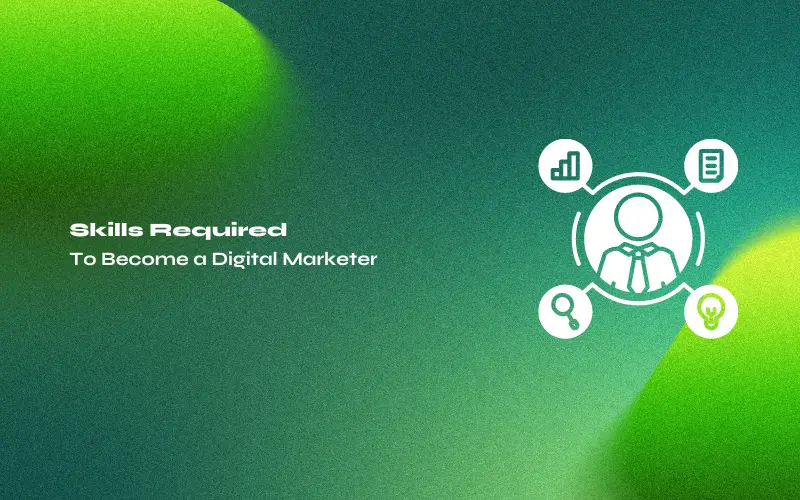
Top Skills Required to Become a Digital Marketer
Sep 28, 2024 5 Min Read 2247 Views
(Last Updated)
Digital marketing is one of the most dynamic industries that has transformed how businesses connect with their target audience. From fledgling startups to large multinational corporations, everyone is adopting digital strategies to stay relevant in today’s fast-paced world.
In this blog post, we will explore the essential skills required to become a digital marketer and why this field presents a promising and fulfilling career path.
Whether you are a seasoned marketing professional or just embarking on your journey, learn about the abilities that will set you apart from the high competition.
Table of contents
- Why Choose Digital Marketing?
- Top Skills Required to Become a Digital Marketer
- Data Analysis and Interpretation
- Content Strategy and Creation
- Search Engine Optimization (SEO) and Search Engine Marketing (SEM)
- Marketing Automation
- Customer Relationship Management (CRM)
- Advanced Communication Skills
- Social Media Mastery
- Advanced Design Skills
- Analytical Mindset
- Adaptability and Continuous Learning
- Conversion Rate Optimization (CRO)
- Email Marketing Expertise
- Influencer Marketing
- Project Management
- Budgeting and ROI Analysis
- Ethical and Legal Awareness
- Conclusion
- Frequently asked questions
- What is the future of digital marketing?
- How can I improve my digital marketing career?
- Why do I need digital marketing skills?
- What is the most in-demand digital marketing skill?
- What is the highest-paying skill in digital marketing?
Why Choose Digital Marketing?
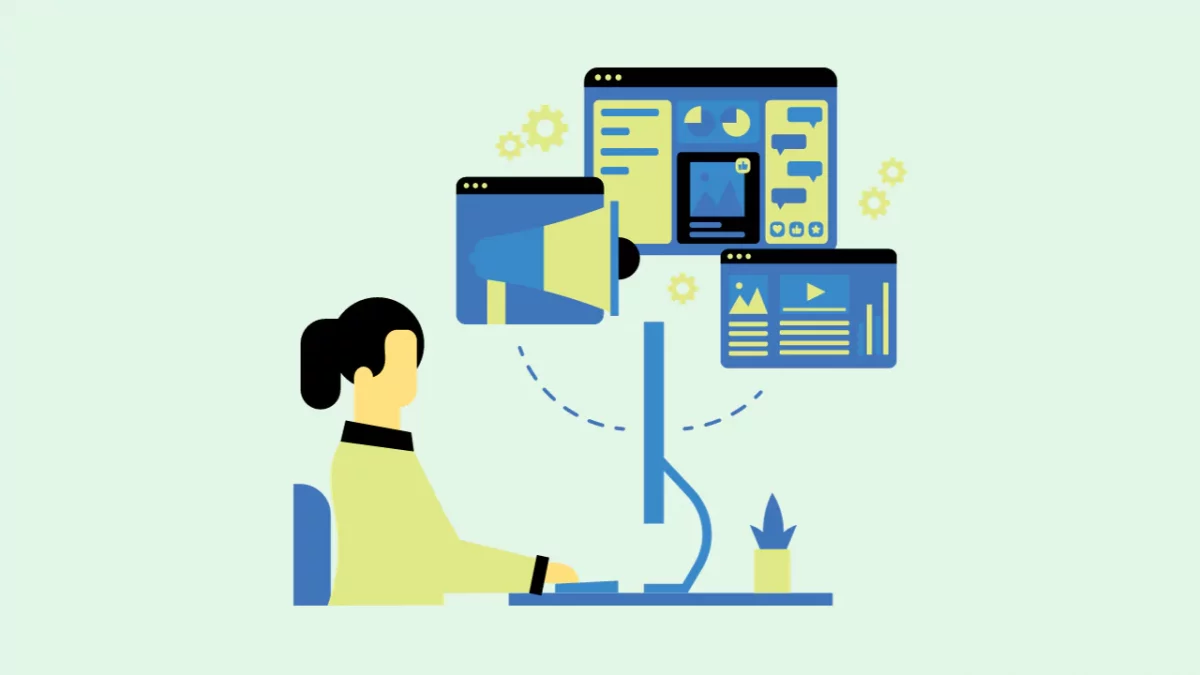
Nowadays, businesses realize the importance of utilizing online platforms to reach their target audiences. With the widespread accessibility of the internet, digital marketing has become an essential aspect of any successful marketing strategy.
As people spend more time online, businesses must embrace digital marketing techniques to engage with their customers effectively. This new trend has led to a growing demand for skilled digital marketers who can navigate the complexities of the digital realm and create innovative strategies to achieve business goals.
While artificial intelligence tools have proven their efficacy in digital marketing, they cannot replace the human touch. Skilled professionals are still needed to interpret data, understand customer behavior, and craft personalized campaigns that resonate with audiences. The human touch adds creativity, empathy, and emotional intelligence to marketing efforts, fostering genuine connections between brands and customers.
The need for adept digital marketers will only strengthen as the digital landscape continues to evolve. You have ample opportunities if you have the skills required to become a digital marketer and are willing to adapt to the ever-changing industry.
Enrolling in GUVI’s Digital Marketing course can help you become an expert in the digital world, regardless of your level of marketing expertise. Learn the ins and outs of email marketing, social media marketing, content production, SEO, and more from professionals in the field. Through practical projects and real-world case studies, acquire job-ready skills with globally recognized certifications.
Instead, if you want to explore Marketing Research Techniques through a Self-paced course, try GUVI’s Marketing Research Techniques certification course.
Top Skills Required to Become a Digital Marketer

Becoming an expert digital marketer requires technical skills, creativity, analytical thinking, and a deep understanding of customer behavior. Let’s look at the top skills required to become a digital marketer:
Data Analysis and Interpretation
As a digital marketer, it’s important to have strong data analysis skills in order to extract the most meaningful insights from various online interactions. With advanced tools and software at your disposal, you can gather, interpret, and analyze data related to consumer behavior, content performance, and campaign effectiveness.
By making data-driven decisions, you can optimize your strategies and achieve better results. It’s all about using the right data to inform your decisions and drive success.
Content Strategy and Creation
Developing and executing effective content strategies to reach your target audience is crucial. To do this, you need to deeply understand who your audience is and what they’re looking for. By creating captivating and SEO-friendly content, you can engage your audience and keep them returning for more.
It’s also essential to continuously innovate and experiment with new ideas to stay ahead of the competition. One key strategy for success is crafting evergreen content that remains valuable and relevant over time, helping to reinforce your brand’s message and establish your authority in the industry.
Search Engine Optimization (SEO) and Search Engine Marketing (SEM)

It’s vital to deeply understand SEO techniques to maximize a brand’s online visibility and drive organic traffic. One key aspect is optimizing website content and incorporating relevant keywords to improve search engine rankings. Staying up-to-date with the latest search engine algorithms is crucial to ensure continued success.
In addition to SEO, one of the essential skills required to become a digital marketer is to leverage SEM techniques to target specific audiences through paid advertising. A truly skilled digital marketer will always employ the best creative campaigns to reach the target audience.
Marketing Automation
Being an expert at marketing automation is a great skill to help streamline your marketing efforts, increase efficiency, and provide personalized experiences to customers on a large scale. With the ability to automate repetitive tasks like email campaigns, lead nurturing, and social media posting, you will have more time and resources to focus on strategic initiatives.
In addition, marketing automation allows you to collect and analyze valuable data about customer interactions, preferences, and behaviors. By taking a data-driven approach, you can create more targeted and relevant marketing campaigns, which leads to higher conversion rates and improved return on investment.
Customer Relationship Management (CRM)
You must prioritize customer relationship management to foster loyalty and strengthen brand-customer relationships. By understanding your customers’ needs and engaging with them personally, you can deliver excellent customer service that goes above and beyond their expectations.
And with the help of CRM tools, you can track and analyze customer interactions to tailor your marketing strategies accordingly. This approach not only drives sales but also builds trust and long-term loyalty with your customers.
Advanced Communication Skills
In the world of marketing, communication is key. Successful digital marketers possess a talent for crafting messages that truly resonate with their target audience.
As a skilled digital marketer, you should have a deep understanding of what your audience wants and needs, and you should use this knowledge to create compelling stories that build a strong emotional connection with potential customers. By doing so, you can effectively convey your ideas and turn casual viewers into loyal customers.
Social Media Mastery
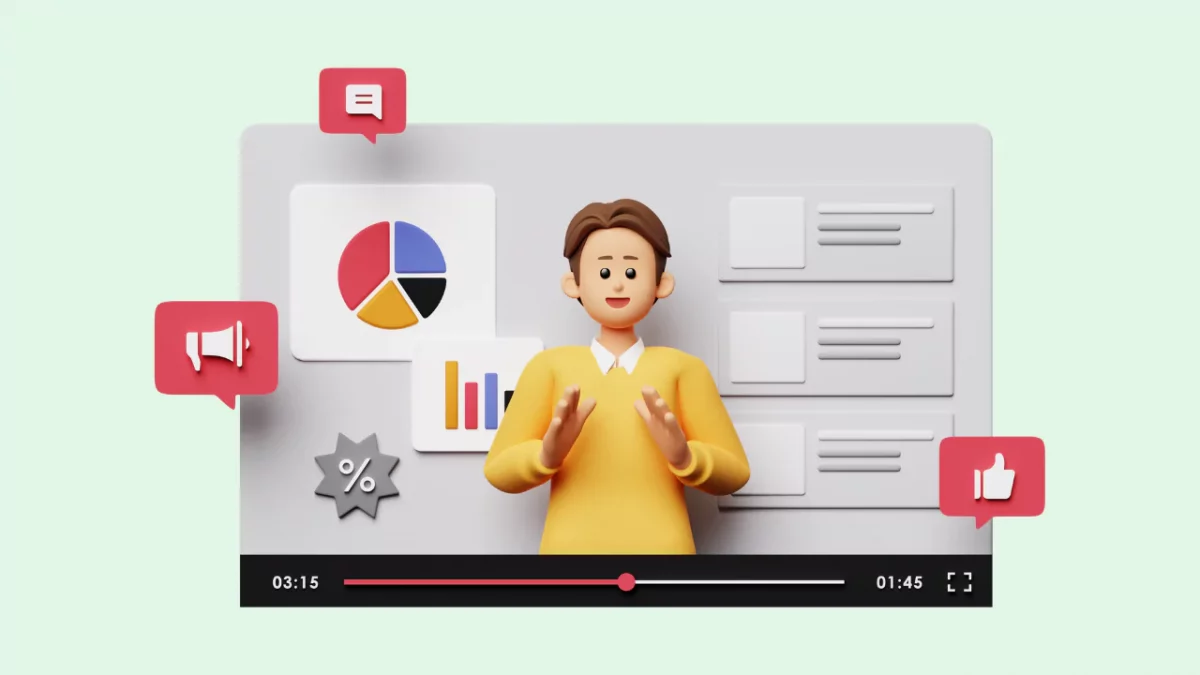
The next set of skills required to become a digital marketer involves being an expert at using social media platforms to your advantage. You should know how to create content that’s not only compelling but also tailored to the specific audience and algorithm of each platform.
Through well-planned and executed social media strategies, you should build a loyal community, increase brand awareness, and foster meaningful customer interactions. Additionally, you must be adept at utilizing paid advertising and leveraging hashtags effectively to maximize reach. It’s truly impressive how much you can accomplish through social media!
Advanced Design Skills
As a digital marketer, you must value creating visually appealing content that captures the attention of your target audience. It takes advanced design skills and proficiency in tools like Adobe Creative Suite, Canva, or Inkscape to create eye-catching visuals, infographics, and multimedia content that enhances the brand’s online presence.
Using the said tools, you can create content that resonates with your audience and drives engagement, leading to increased sales and brand awareness.
Analytical Mindset
One of the most sought skills required to become a digital marketer is an analytical mindset when approaching challenges. You must be able to identify trends, interpret complex data sets, and use analytics to measure the success of marketing campaigns.
By taking an analytical approach, you can continuously refine strategies for optimal performance and ensure your clients get the best possible results.
Adaptability and Continuous Learning

Being a digital marketer, you should be prepared for how quickly things can change in this field. You need to stay on top of the latest trends and emerging technologies. Doing so ensures you always provide your clients with the most effective marketing solutions possible.
Whether working on a social media campaign, optimizing a website for search engines, or creating email marketing content, staying up-to-date is essential to remain competitive.
Conversion Rate Optimization (CRO)
As a proficient digital marketer, you must acknowledge the importance of Conversion Rate Optimization techniques and be skilled at analyzing user behavior, conducting A/B testing, and making changes to increase website conversions.
Optimizing the conversion funnel is crucial for maximizing the return on marketing efforts. It’s incredible how small changes can make a massive difference in the number of conversions a website receives.
Email Marketing Expertise
Email marketing remains a very effective tool and one of the top skills required to become a digital marketer. You need considerable experience to understand the intricacies of email marketing strategies appropriately.
You will create personalized and targeted campaigns to nurture leads, retain customers, and drive sales. The right approach will allow you to connect with potential customers and build lasting relationships.
Influencer Marketing
As a digital marketer, you should know how influencer marketing can be a powerful tool for expanding your brand’s reach and building credibility. By partnering with influencers who share your brand values and have an authentic connection with your target audience, you can tap into their influence and leverage their reach to achieve your marketing goals.
Rather than relying on traditional marketing techniques, this modern approach allows you to build relationships and create content that resonates with your audience, leading to increased engagement and, ultimately, increased sales.
Project Management
Managing digital marketing campaigns can be quite challenging, especially considering the numerous moving parts and stakeholders involved. As a digital marketer, you must possess exceptional project management skills to coordinate and execute campaigns efficiently.
Your robust project management skills will further allow you to ensure every objective and deliverable gets completed on time and within the budget, ensuring the all-round success of your marketing campaigns.
Budgeting and ROI Analysis

Understanding the importance of budgeting for marketing campaigns and analyzing the Return on Investment (ROI) analysis for each effort is one of the most critical skills required to become a digital marketer.
You must learn how to make data-driven decisions on resource allocation to achieve the best results within the allocated budget. When mastered, you can easily navigate this process and ensure that each campaign is optimized for success.
Ethical and Legal Awareness
You need to be good at prioritizing ethical and legal practices if you want to become an expert digital marketer. You need to stay compliant with data protection laws and be transparent with customers about how you will use their data.
It’s also crucial for you to avoid using deceptive marketing tactics that could harm your brand’s reputation. Following the established guidelines, you can build trust with your audience and establish a reputable online presence.
Conclusion
As businesses continue investing in their digital presence, the demand for skilled digital marketers grows. By staying up-to-date with industry trends and continuously honing your abilities, you can position yourself for a rewarding and lucrative career in digital marketing.
Mastering the skills mentioned above will help you get to the ins and out of digital marketing, empowering you with the proper knowledge to excel as a digital marketer. If you like this blog post, you can also read about the best websites to learn digital marketing.
Join GUVI’s Digital Marketing Course to kickstart your journey in this exciting field. Gain expertise in ChatGPT, WordPress, Meta Business Suite, Google Analytics, Youtube Analytics, Google Ads Manager, and more. Master essential skills in SEO, social media marketing, email marketing, content creation, and digital advertising tactics to excel in the Digital Marketing industry.
Alternatively, if you want to explore Marketing Research Techniques through a Self-paced course, try GUVI’s Marketing Research Techniques certification course.
Frequently asked questions
What is the future of digital marketing?
Cutting-edge technologies like AI, VR, and AR are shaping the future of digital marketing. These advanced tools enable digital marketers to create more personalized, interactive, data-driven strategies to resonate with their target audience.
How can I improve my digital marketing career?
Enhance your career by continuous learning, staying up to date with the latest trends and technologies, building a personal brand, networking, and specializing in a specific digital marketing niche.
Why do I need digital marketing skills?
Digital marketing skills are essential for you to easily reach out to a global audience, cost-effectively target your audience, make data-driven decisions, and stay adaptable in the continuously evolving digital landscape.
What is the most in-demand digital marketing skill?
Data analysis and interpretation are among the most in-demand digital marketing skills, along with SEO, content marketing, and social media marketing.
What is the highest-paying skill in digital marketing?
Data analytics, Conversion Rate Optimization (CRO), and Marketing Automation are associated with higher salaries in digital marketing.

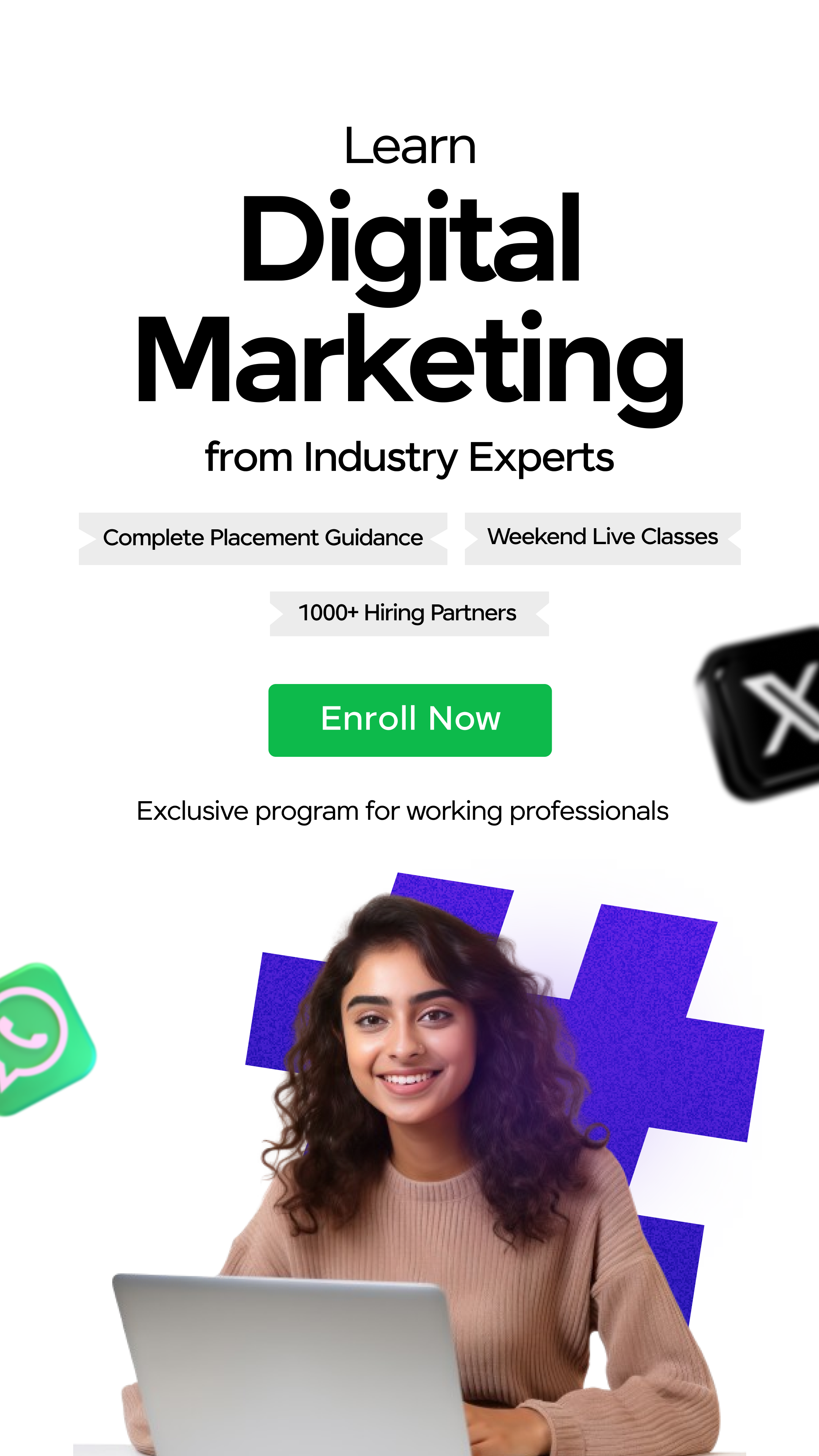





















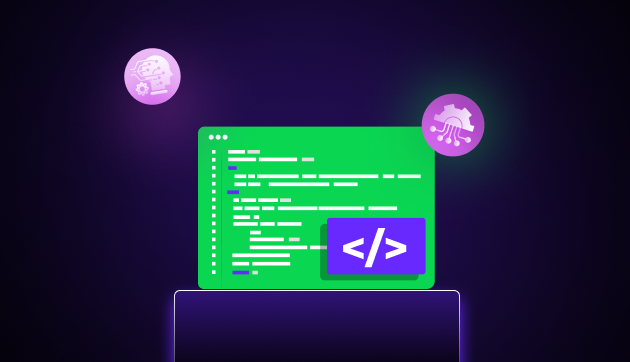
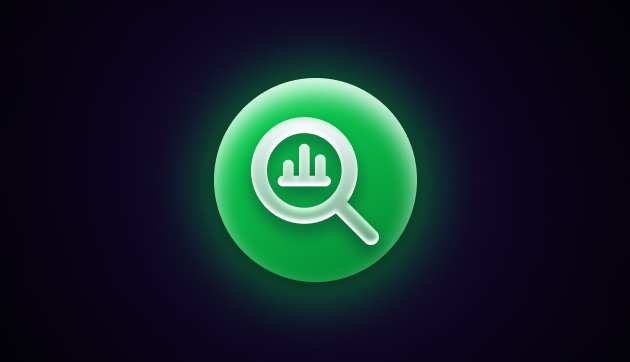




Did you enjoy this article?